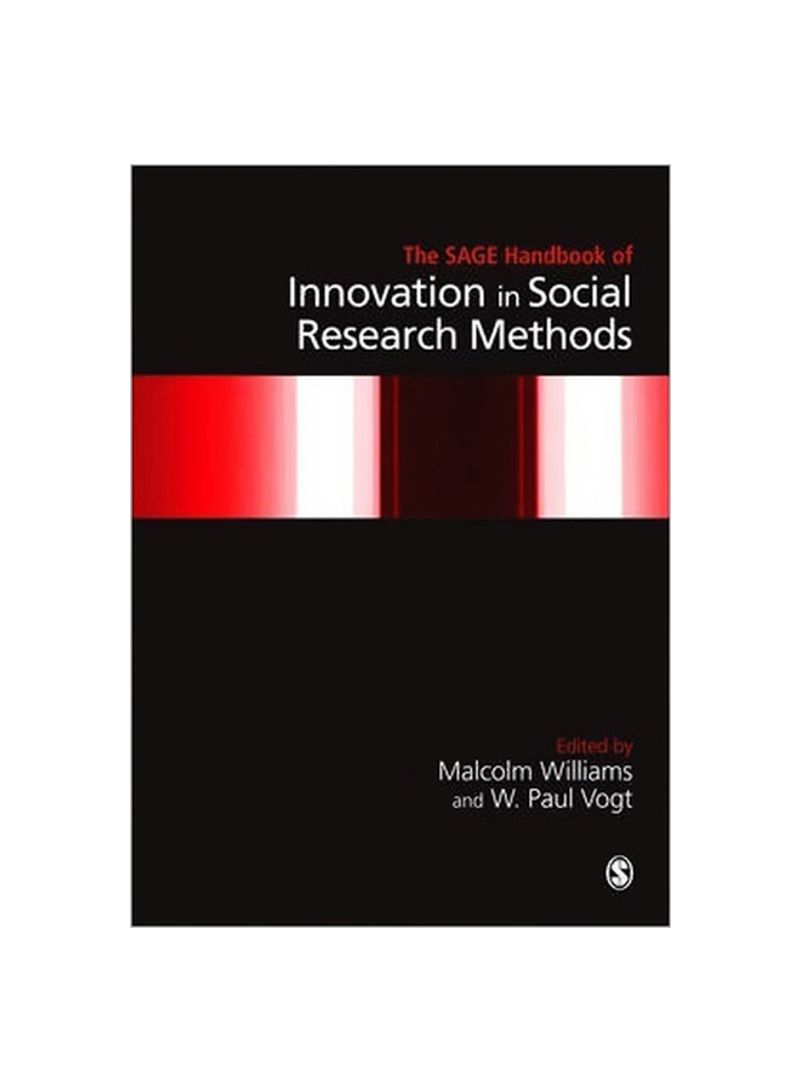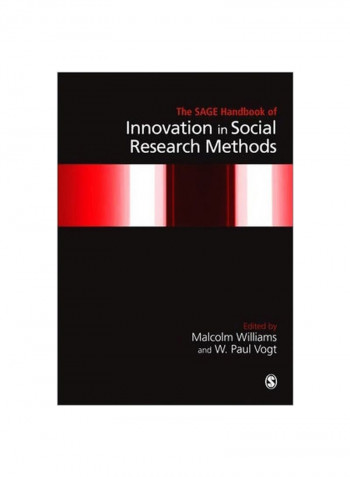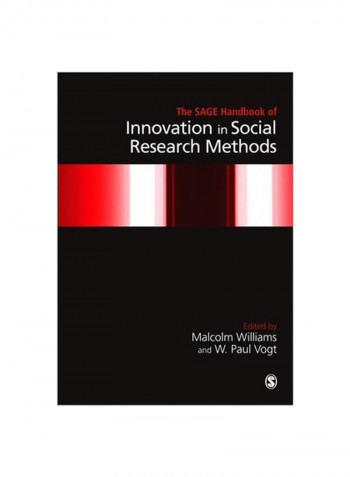The Sage Handbook Of Innovation In Social Research Methods Paperback
Recommend
Sort by
Rating
Date
Specifications
Author 1
Malcolm Williams
Book Description
Social research is a bourgeoning field. Of course it has many traditions and approaches, but there is a high premium upon thinking differently and thinking anew because social life is never static or wholly predictable. The Handbook, edited by internationally recognized scholars, provides a comprehensive, pitch-perfect critical assessment of the field. The main features of the Handbook are: Clear organization into 4 parts dealing with The Social Context of Research; Design and Data Collection; Integrating The Analysis of New Data Types; Sampling, Inference and Measurement Clear, cutting edge chapters on Objectivity; Causation; Organizing Social Research; Correspondence Analysis; Grounded Theory; Conversational Surveys; Mixed Methods; Meta-Analysis; Optimal Matching Analysis; GIS Analysis; Quantitative Narrative Analysis; Longitudinal Studies; SEM; MLM; Qualitative Comparative Analysis; Respondent Driven Sampling Brings together a glittering assembly of the key figures working in the field of research methods Demonstrates the continuities and productive tensions between classical traditions and real world research. The result is a superbly organized text which will be required reading for anyone interested in the routes and future of social research. It is an unparalleled teaching resource and a 'must have' for serious social researchers.
ISBN-10
1446295834
Language
English
Publisher
Sage Publications Ltd
Publication Date
30 May 2014
Number of Pages
664
About the Author
Malcolm Williams is Professor and Director of the School of Social Sciences at Cardiff University. Prior to joining Cardiff in 2010, he was Professor of Social Research Methodology and Head of the School of Psychosocial Sciences at the University of Plymouth where he taught for 16 years. Malcolm has designed and taught modules in the philosophy of social research for 18 years at both undergraduate and postgraduate level. In these he has introduced a number of innovative pedagogic techniques, such as Problem Based Learning and `Concept Speed Dating', in which students take a key idea and move from table to table attempting to build conceptual links between ideas.Additionally he has taught many modules and short courses in social theory, research design, questionnaire design, scaling, sampling, scientific method and history of science. Williams has an extensive publishing record in philosophy of social research, including: Introduction to Philosophy of Social Research (with Tim May, Routledge, 1996), Knowing the Social World (with Tim May, OUP, 1998), Science and Social Science (Routledge, 2000), Making Sense of Social Research (SAGE, 2003), Philosophical Foundations of Social Research (SAGE, 2006), Teaching Quantitative Methods (with Geoff Payne, SAGE, 2011) Objectivity and Subjectivity in Social Research (with Gayle Letherby and John Scott, SAGE, 2012) and The SAGE Handbook of Innovations in Social Research (with W Paul Voght, SAGE, 2014). W. Paul Vogt is Emeritus Professor of Research Methods and Evaluation at Illinois State University where he won both teaching and research awards. He specializes in methodological choice and program evaluation and is particularly interested in ways to integrate multiple methods. His other books include: Tolerance & Education: Learning to Live with Diversity and Difference (Sage Publications, 1998); Quantitative Research Methods for Professionals (Allyn & Bacon, 2007); Education Programs for Improving Intergroup Relations (coedited with Walter Stephan, Teachers College Press, 2004). He is also editor of four 4-volume sets in the series, Sage Benchmarks in Social Research Methods: Selecting Research Methods (2008); Data Collection (2010); Quantitative Research Methods (2011); and, with Burke Johnson, Correlation and Regression Analysis (2012).His most recent publications include the coauthored When to Use What Research Design (2012) and Selecting the Right Analyses for Your Data: Quantitative, Qualitative, and Mixed Methods Approaches (2014).
Author 2
W. Paul Vogt
Editorial Review
This is a wonderful collection of interesting, novel and practically useful discussions of a wide variety of methodological topics in the social sciences. -- Harold Kincaid This book speaks to researchers across the social sciences, irrespective of their methodological persuasion. It brings fresh new perspectives to some of the core concerns of social science research methods; it challenges conventions and accepted wisdoms and provides pointers to an exciting future. The editors have produced a collection of papers that bring together some of the most original and innovative thinking about research methods. The chapters run the gamut of the research process whilst moving seamlessly across methodological boundaries. The book provides new ways of thinking about research and new ways of doing research, providing the reader with valuable pointers to their own research. -- Angela Dale



